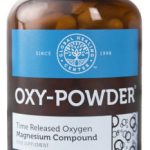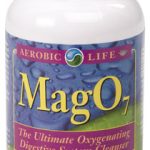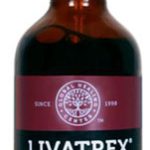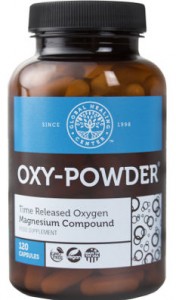A Happy New Year To All.
I noticed that one similar(ish) company to us have already sent out five newsletters this year, and the year is only 10 days old. They weren’t even proper newsletters, they were just the typical flogletters with no meaningful content that many companies put out, either because they can’t be bothered to write a scholarly informative newsletter, or because they are not capable of doing so. I regard this as disrespectful, money grabbing, and above all stupid. Irritating customers by pestering them five times in ten days is not the way to go, an you can rest assured we will never send newsletters more than a couple of times per month. With my rant over, here are 5 suggestions to cleanse your body and improve your health after the Christmas pudding and wine.
1. Clean Your Colon With An Oxygen Colon Cleanser
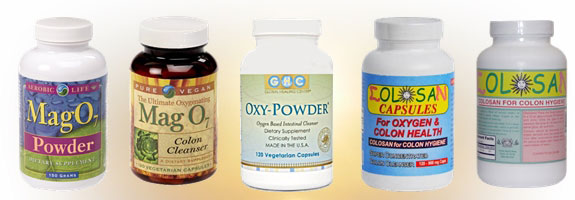 If you have over indulged on food and drink over Christmas, this is the time to use an Oxygen Colon cleanser for detoxing, and to get rid of that bloating around your tummy. You might also want to think about supporting your liver if your health is off-track.
If you have over indulged on food and drink over Christmas, this is the time to use an Oxygen Colon cleanser for detoxing, and to get rid of that bloating around your tummy. You might also want to think about supporting your liver if your health is off-track.
These products are all very similar. We get asked every day which one is the “best” one, but its a meaningless question. It’s a bit like asking whether an orange is “better” than a tangerine. True some people do get on better with one than another, but that comes down to individual experience.
Why cleanse your colon?
The average person is walking around with anywhere from six to twelve pounds of undigested material fermenting in their intestines and colon. Digestion is a process of oxidation. That is why we give off heat, carbon dioxide and sulfur dioxide. Just like a car engine when there is improper oxidation some of the fuel gets left behind as a residue. In the digestive tract, there is a similar build up of partially digested gunk. In an automobile when you add oxygen to the fuel mixture, the built up materials are burned off or oxidised. You can do the same for your body. As these materials accumulate and subsequently begin to rot, your body wraps them in mucous to keep them from poisoning you. Colosan turns the accumulation and the mucous into carbon dioxide and water that are gently eliminated. It is unimaginable to think of going one week without the use of a toothbrush or toilette tissue. Yet, when was the last time you thought about cleaning the twenty feet in between? Do you think it’s any cleaner? It’s a simple fact, people rarely clean where they cannot see and that is where problems begin.
What is the significance of this?
Your impacted material is home base to four of the most dangerous threats to your health. Number one, it is where toxins accumulate. Secondly, it is where viruses and bacteria can hide .Thirdly, the impacted material is a feacal fortress for parasites to reside in and an ideal garden for the overgrowth of undesirable flora such as candida. By using one of these colon cleansers to oxidise and eliminate this impacted material, you are eradicating the home base to some the largest assailants to your health and giving them nowhere to hide.
2. Deter candida, and prevent colds and flus at the same time with liquid Oxygen

This is the time of year when every other person seems to be getting colds and flu’s. However I almost never get colds, and when i do, they are incredibly mild these days. I am not naturally super healthy – it’s because I follow the following steps to support inhibit pathogens and support my immune system. You can do the same, and say goodbye for winter colds.
First, you should supplement with any of our liquid oxygen products. Virus’s hate our Liquid Oxygen products! So if you just did one thing through the winter to prevent colds and flu’s, this would be your starting point. But remember to take it persistently – as opposed to when you be bothered, or if you happen to remember, which not surprisingly leads to very poor results. By the way, the liquid oxygen is also extremely valuable in the fight against candida overgrowth, being anti viral as well as anti fungal.
Secondly, please note that these products are also detoxifiers. When Oxygen Elements Max is taken and the energy potential in the body is increased, the natural mechanism in most people’s bodies is to increase metabolism of waste material out of the body. This can result in detoxification symptoms — such as headaches, achiness, skin eruptions, recurrence of past symptoms — if it is done too rapidly, and especially if the eliminative channels of the body are congested. So although the label suggests taking 7 drops 3 x per day, if you are full of toxins and the product makes you feel lousy please take the amount you take right down. In exceptional cases, some people have to begin on only 1 drop twice per day. But even if you do need to do this, you’ll soon be able to go up to the full label dosage. We have one customer, who literally takes one bottle a day, and it’s the only product that has saved has restored his health. (He has written a review on the web site, which you can all view when you visit the web page).
3. Super charge your immune system with Vitamin C
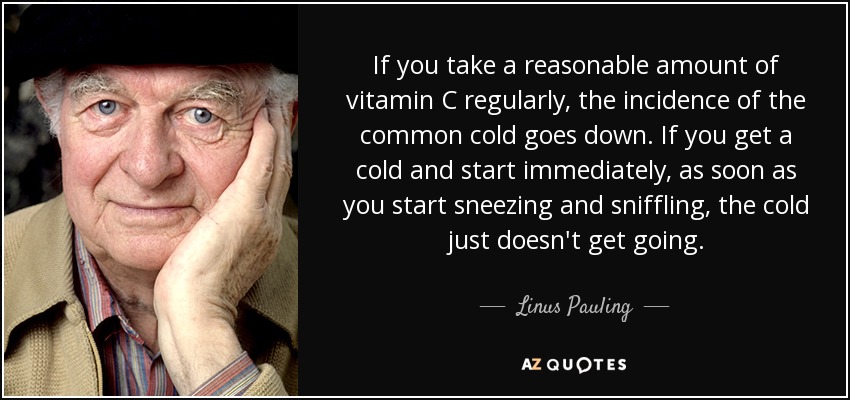
Any Vitamin C product will do but Tapioca Vitamin C is our best selling one, it’s inexpensive, and has consistently good reviews from customers who use it, often exceeding other Vitamin C products. You can see that for yourselves if you read the reviews. Take 1-2 capsules every day, preferably a couple of hours away from when you take the Oxygen. If you do go down with a cold, you can take one capsule every 1-2 hours to get rid of it fast! I’ve gone on about the benefits of Vitamin C in so many previous newsletters, that I am not going to repeat myself here. All I will say is that I think supplementing with Vitamin C is good for everyone.
4. Extra charge your immunity with Zinc
 Zinc has also been shown to be useful in many studies both for preventing colds and supporting the immune system generally. We provide a number of zinc products, but the one I personally use is Zinc Gluconate with Vitamin B6 (the B6 assists the absorption of zinc). Whole books are available on the benefits of zinc supplementation for a whole raft of health challenges, more than can be ventured into in a short newsletter, and some customers may remember that this has been the subject of entire newsletters in the past.
Zinc has also been shown to be useful in many studies both for preventing colds and supporting the immune system generally. We provide a number of zinc products, but the one I personally use is Zinc Gluconate with Vitamin B6 (the B6 assists the absorption of zinc). Whole books are available on the benefits of zinc supplementation for a whole raft of health challenges, more than can be ventured into in a short newsletter, and some customers may remember that this has been the subject of entire newsletters in the past.
Zinc is arguably the most important trace element that our body’s need, and most of us who subsist on modem diets are appreciably Zinc-deficient. Zinc is essential for the working of every single cell in the body. Its main action is co-enzymatic, i.e.. it assists in the correct functioning of enzymes within the cell. It is now known that there are as many as 200 enzymes that require Zinc for their activity. One of these, RNA polymerase, is cardinally important because it is involved in the synthesis of all proteins in the body, of which there are known to be more than 50,000! This means that the body’s supply of structural proteins, antibodies, most hormones and enzymes is very much dependent on Zinc status. Other important Zinc-dependent enzymes govern energy production.
5. Vitamin D the “sunshine” nutrient associated with summertime immunity, which you can now get all year.
 Thirdly, take Vitamin D, which is incredibly important for the entire immune system. Unfortunately, almost everyone living in Norther Europe is Vitamin D deficient at this time of year, and dark skinned people who who absorb vitamin D much more slowly than white Europeans (from the reaction between ultra violet light from the sun on the skin and cholesterol), are nearly always Vitamin D deficient the entire year! The Recommended Daily Allowance for Vitamin D is a pitiful 200iu per day, but my opinion is that this is utter nonsense. In the summertime, 30 minutes exposure to the sun enables the body to produce 10,000-20,000iu’s per day – in other words up to 50 times more than the EU Recommended Daily Allowance. So why is the Daily Allowance so low? There are proposals incidentally, coming from the unelected wastes of taxpayers money know as the EU, ever influenced by the vested interests of big pharma to limit your the legal availability of Vitamin D supplements to the pathetic 200iu I just spoke about. Anyway, whilst this has not occurred, I recommend 1-2 tablets per day of Vitamin D3 5,000iu with Vitamin K2. The Vitamin K2 is added as Vitamin D works synergistically with K2. Oh by the way, you may have read that Vitamin D is ‘toxic’ in high dosages somewhere or other. Well, It is true that 40,000iu given daily to rats has been shown to be toxic and can kill them. Extrapolated to humans, that’s around 10,000,000 (10 million) iu’s per day required to kill a human. According to one leading researcher, Vitamin D is not toxic on any dosage if it is taken together with Vitamin K2. Anyway, since I am recommending 5,000-10,000 and not 10,000,000 units per day (and this is what I take for around 8 months of the year), I don’t think I am likely to be pushing up daisies any time soon as a result of my Vitamin D intake, and somehow I suspect you won’t either.
Thirdly, take Vitamin D, which is incredibly important for the entire immune system. Unfortunately, almost everyone living in Norther Europe is Vitamin D deficient at this time of year, and dark skinned people who who absorb vitamin D much more slowly than white Europeans (from the reaction between ultra violet light from the sun on the skin and cholesterol), are nearly always Vitamin D deficient the entire year! The Recommended Daily Allowance for Vitamin D is a pitiful 200iu per day, but my opinion is that this is utter nonsense. In the summertime, 30 minutes exposure to the sun enables the body to produce 10,000-20,000iu’s per day – in other words up to 50 times more than the EU Recommended Daily Allowance. So why is the Daily Allowance so low? There are proposals incidentally, coming from the unelected wastes of taxpayers money know as the EU, ever influenced by the vested interests of big pharma to limit your the legal availability of Vitamin D supplements to the pathetic 200iu I just spoke about. Anyway, whilst this has not occurred, I recommend 1-2 tablets per day of Vitamin D3 5,000iu with Vitamin K2. The Vitamin K2 is added as Vitamin D works synergistically with K2. Oh by the way, you may have read that Vitamin D is ‘toxic’ in high dosages somewhere or other. Well, It is true that 40,000iu given daily to rats has been shown to be toxic and can kill them. Extrapolated to humans, that’s around 10,000,000 (10 million) iu’s per day required to kill a human. According to one leading researcher, Vitamin D is not toxic on any dosage if it is taken together with Vitamin K2. Anyway, since I am recommending 5,000-10,000 and not 10,000,000 units per day (and this is what I take for around 8 months of the year), I don’t think I am likely to be pushing up daisies any time soon as a result of my Vitamin D intake, and somehow I suspect you won’t either.
As always I have only scratched the surface of what I would like to say, but anyone who follows these steps, will get vastly fewer colds and flu’s during the winter
 Best wishes for a wonderful New Year
Best wishes for a wonderful New Year
Mark G. Lester
Director – The Finchley Clinic Ltd
www.thefinchleyclinic.com

